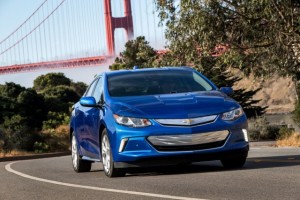 More and more automakers are gearing toward an electrified future, with 2016 having its fair share. The plug-in electric car market in the United States essentially began in 2008 when Tesla produced its Roadster. Almost half a million plug-in electrics have been sold since 2008, with the U.S being the global market leader. There are developments and news that emerged this year that promise to speed up the transition to plug-in electric vehicles.
More and more automakers are gearing toward an electrified future, with 2016 having its fair share. The plug-in electric car market in the United States essentially began in 2008 when Tesla produced its Roadster. Almost half a million plug-in electrics have been sold since 2008, with the U.S being the global market leader. There are developments and news that emerged this year that promise to speed up the transition to plug-in electric vehicles.
A key development is the nationwide Volt rollout for the year 2016/2017. Although the Chevy Volt was completely redesigned last year and launched in late 2015, earlier this year saw its nationwide rollout. This pioneer is clearly a unique invention that achieved the highest total national sales. It has an EV range of 53 miles, which is much higher compared to that of a standard plug-in hybrid. The new Volt also has a revamped powertrain architecture that is adds to the model’s relevancy. The architecture serves as the basis for development of more plug-in hybrids.
The unveiling of Tesla’s Model 3 is a significant event that has a positive impact on the plug-in electric market. There was a pile-up of at least 400,000 pre-orders for this 3rd generation Tesla model. While some people are skeptical and have raised concerns on how the car will fit the budget of many buyers, the proponents have argued that the model marks the beginning of battery electrification. The base price is $35,000 with the car promising a range of more than 215 miles.
Another development worth noting is the grand opening of the Gigafactory, which is scheduled for later this week. The factory was set up for the sole purpose of building batteries for Tesla’s Model 3. Currently, the structure will be used by test mules considering the fact that the official production of Model 3 is planned for late next year.
The rules of CAFE and their review have also sparked the plug-in market. It is now obligatory for United States car manufacturers to follow the stringent CO2 and mpg guidelines set under the law of Corporate Average Fuel Economy. The federal rules, in addition to California’s ZEV rules have pushed automakers into opting for plug-in cars to increase their product portfolio. Finally, the aftermath of Volkswagen diesel scandal also had an impact on the plug-in market. The automaker has promised to come clean and focus more on green car manufacture. Volkswagen has a plan of introducing three novel battery electric vehicles each year through the year 2025.